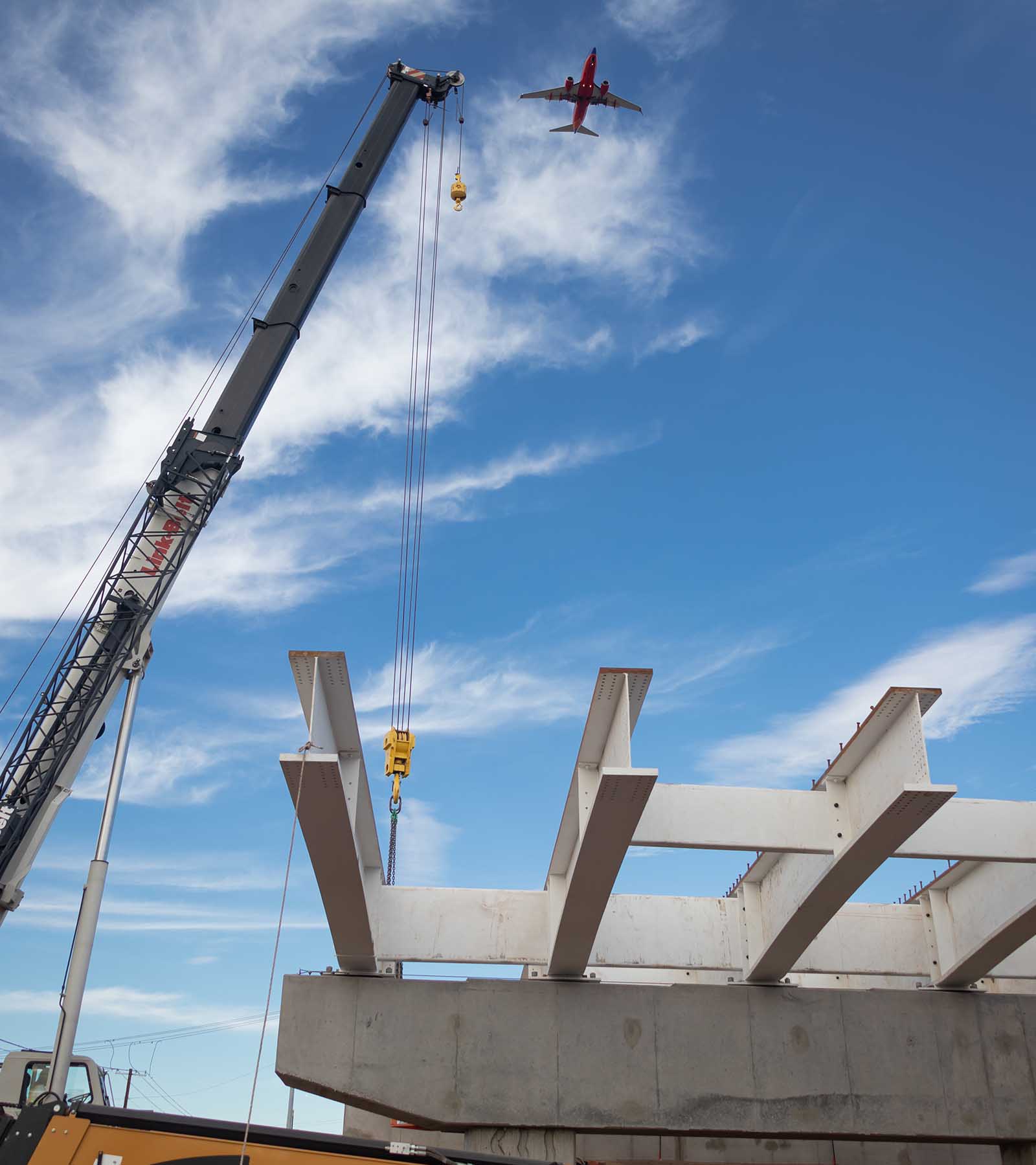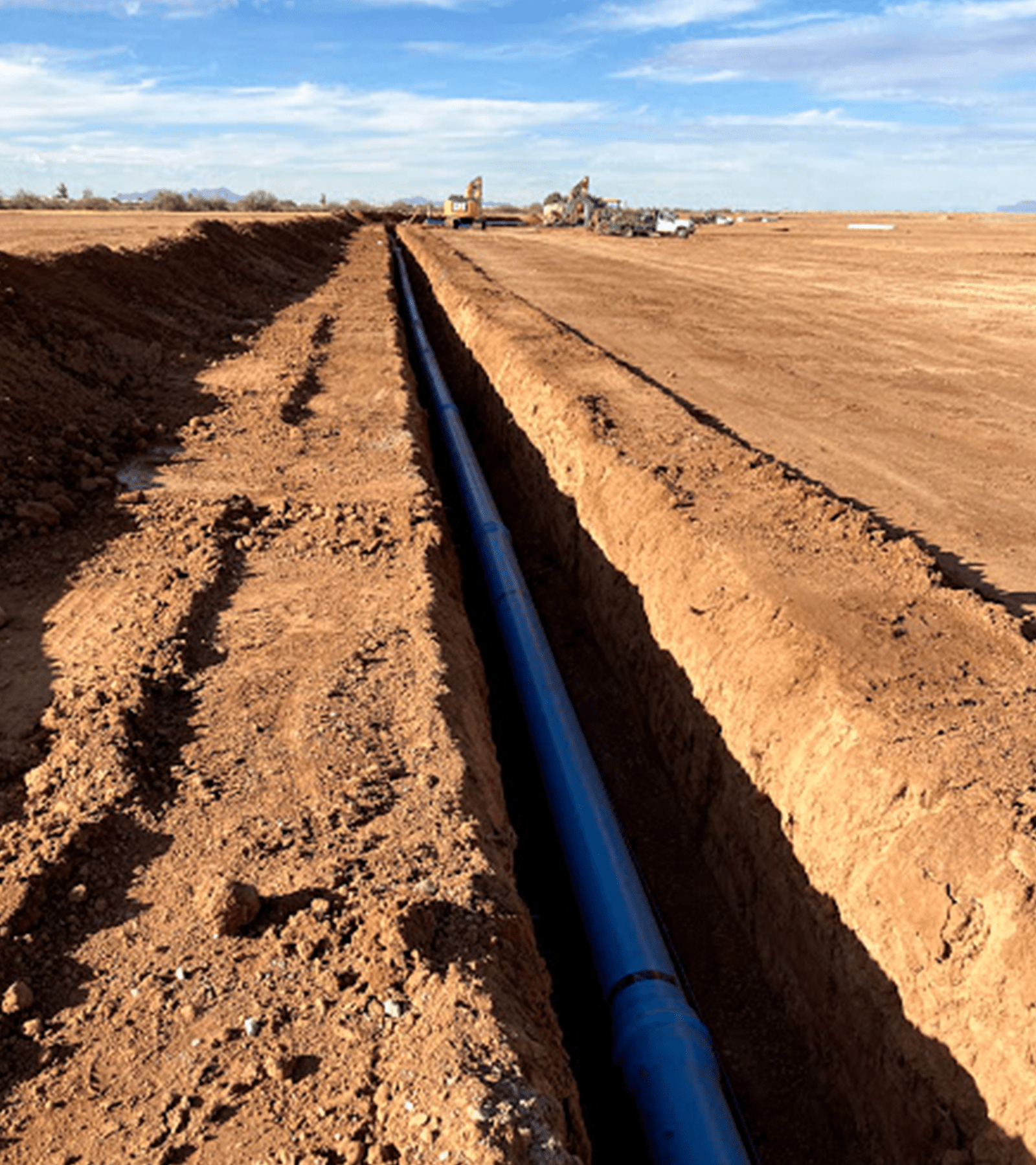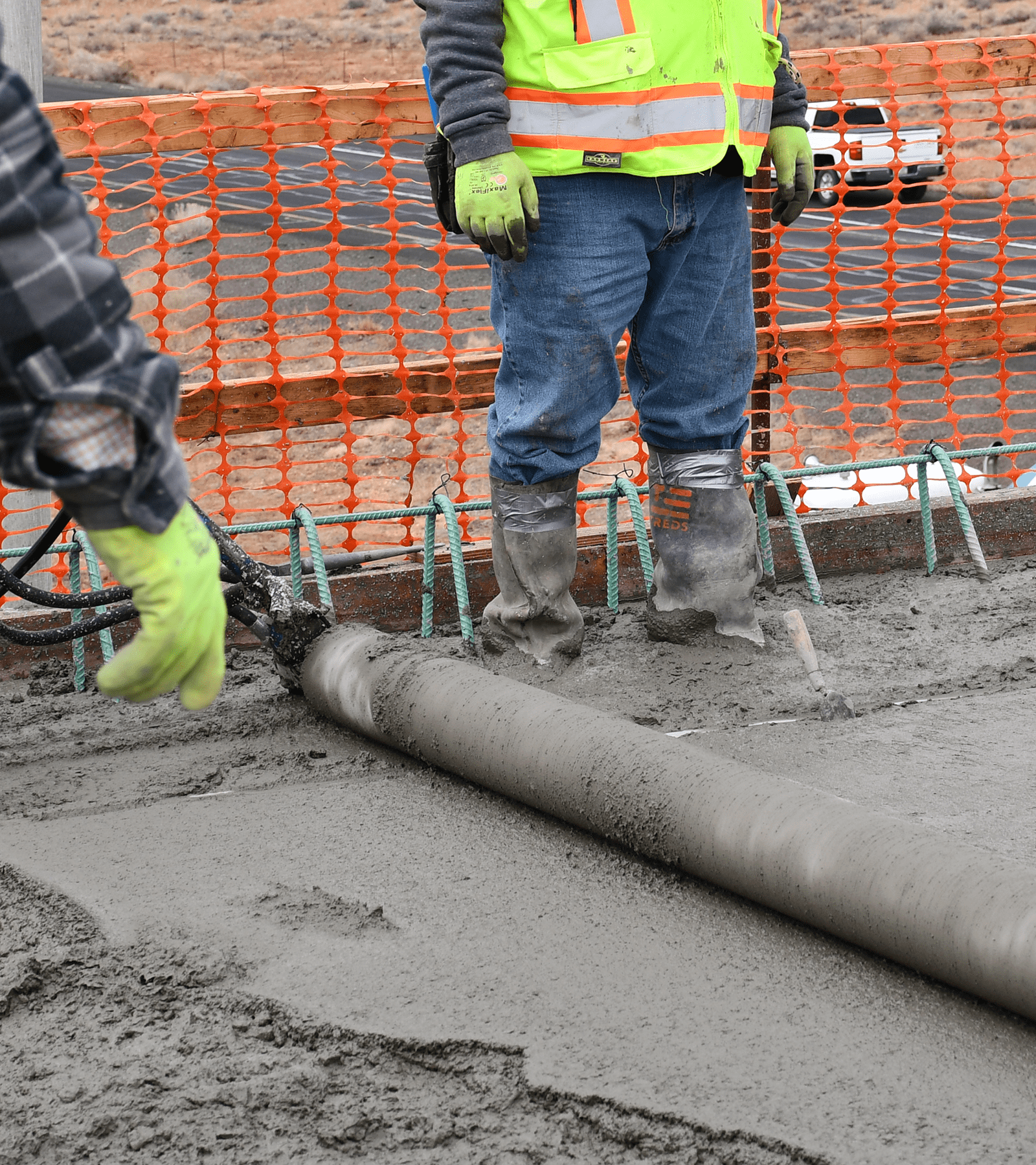The Challenge
The project consisted of constructing a new single span bridge using ABC methods with Prefabricated Bridge Elements (PBE) and related roadway and drainage improvements on the Oatman – Topock Highway (Old Route 66) at the Sacramento Wash. The work associated with the ABC bridge and roadway approaches was completed early within an 87-hour full roadway closure period. This was the first ABC project for Mohave County and the first Arizona project applying an ABC method of PBES.
Pulice crews fabricated the bridge in Phoenix, then transported it in sections to the site, which was close to four hours away. A tight schedule, rural location, and limited right-of-way contributed to the challenging nature of the project. The project received national attention – FHWA, ADOT, and Mohave County partnered on a demonstration showcase that took place during construction, with more than 80 participants involved from State and County agencies. The project was funded in part by FHWA’s Accelerated Innovation Deployment Demonstration program, receiving $1 million in funds, with a total project cost of $2.9M. Because the prefabricated bridge elements cut down the closure period to less than four days, an estimated $2.6M was saved in expenses to motorists.
Safety and Quality
Safety Performance including number of lost-time injuries per 1,000 man-hour worked and overall safety program employed during the construction phase. Pulice constructed the Sacramento Wash Bridge in Topock, AZ using ABC with PBE during an allowable 96-hour closure. In addition to the structural work, 1400 ft. of roadway was reconstructed and elevated 10 ft. to accommodate the bridge. The individual safety challenges of this project are not unique to construction. However, combining all of these elements; compressed schedule, concurrent earthwork and structure operations, and limited work zone, created a safety risk.
1.8M
Contract Amount
Mohave County
0
Change Orders
Pulice successfully delivered a zero change order project.
5th
Largest County in the US
Construction spanned 1,485 feet to complete the 114-foot span bridge
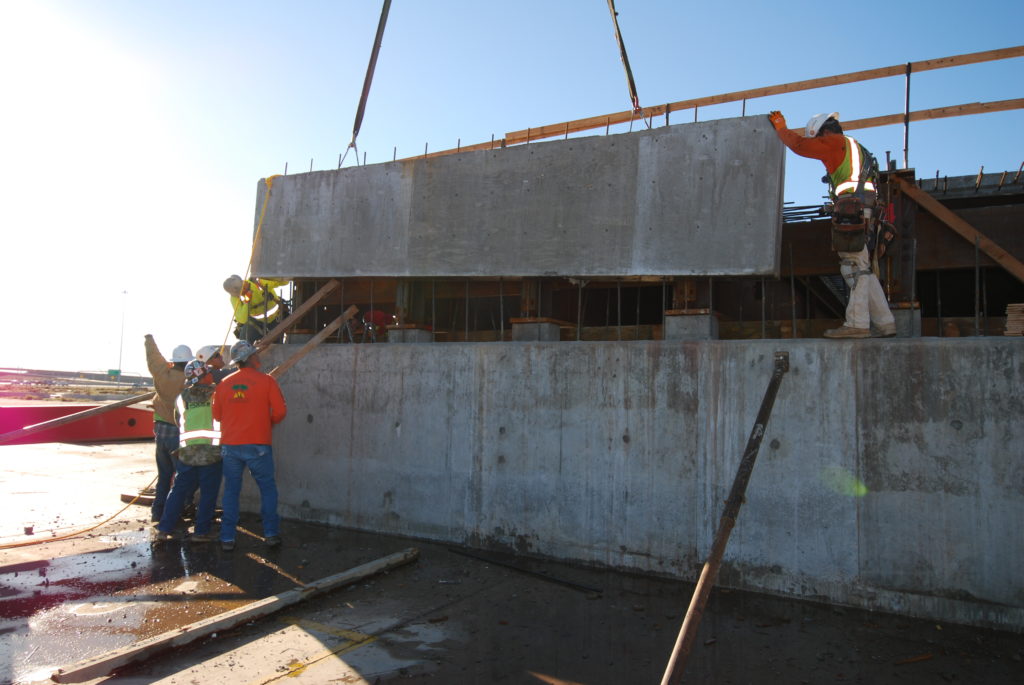
Construction Practices
The success of this project is attributed to many aspects described throughout this submittal; however, the most important key element was the Team’s upfront planning and collaboration. Traditional design-bid-build projects where jobs are constructed under a standard schedule allow for the RFI process to run its course with respect to clarification and response durations. On alternative delivery projects, task force teams are assembled to vet out potential impacts and identify acceleration opportunities during construction. The alternative-delivery approach was employed on this design-bid-build project and because of this approach, the team identified many measurable opportunities that accelerated all aspects of the work, including testing. Applying the alternative-delivery approach to a traditional process proved to be the biggest contributing factor to the project’s success.
During the 87-hour closure, the road construction scope took an estimated 80 hours to complete, compared to 30 hours (concurrent) for the bridge placement. Therefore, effectiveness of the Project’s ABC innovation application was proven through only 30 hours encumbrance on Oatman Highway operations, compared to the estimated 11-week full closure to carry out bridge construction by traditional non-ABC methods.
Project success reflects key stakeholder cornerstones including (1) incorporating constructability into the design process, (2) prioritizing delivery in design and procurement, and (3) maintaining effective stakeholder coordination through strong, clear
Project schedule snapshot: 96-hour window broken down into 15-minute intervals
Mohave County and ADOT carried out a post-construction survey of property owners in the nearest Census Designated Places to the Project site: Golden Shores, Arizona and Topock, Arizona. ADOT mailed surveys during the week of May 14, 2017 to 1,502 property owners, and the County received 146 survey responses, indicating a 9.7% response rate. The survey found that the majority of users were satisfied with the Project’s overall impact to traffic and Project overall results. 56 percent of respondents answered “yes” to the question “If Accelerated Bridge Construction costs more, would you support your tax dollars being allocated to implement it on future projects?” These survey results affirm user and community support for the Project.
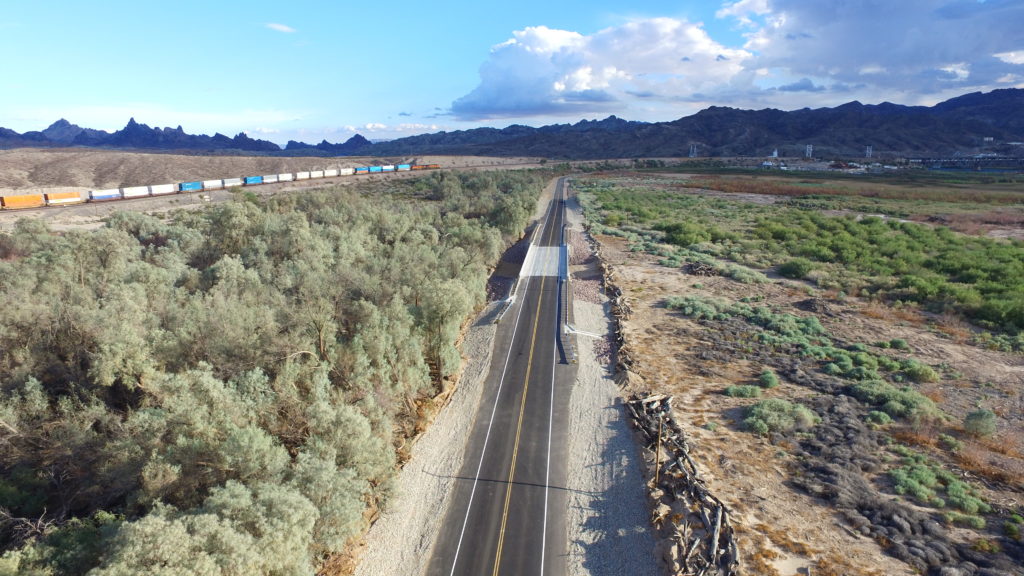
Conclusion

We are the winner of the 2017 ACEC of AZ Engineering Excellence Honor Award.

